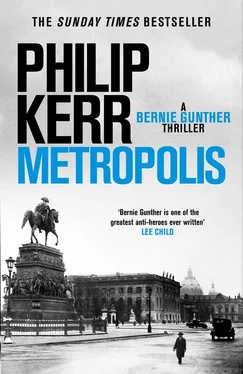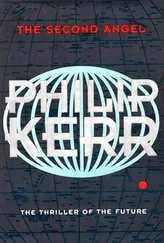All would probably have been well if the sergeant had survived, but the next day he died of his wounds, and someone at Brigade was stupid enough to make sure the corporal found out about it, minutes before the Germans mounted an attack, which was when the incident with the rifle occurred. Instead of helping to defend the trench, the corporal threw away his rifle in disgust and walked back towards Brigade HQ, where he was eventually arrested.
With a better advocate he might have survived; an army order stipulated that in the case of men on trial for their life, a sentence of death might be mitigated if conduct in the field had been exemplary. By any standard the corporal’s heroic actions in saving the sergeant the previous day ought to have been more than enough to have saved his life. But asked by his court-martial exactly why he had thrown away his rifle, he had replied that if he’d held on to it any longer he might have shot the idiot of a lieutenant who was leading the company or indeed any of the general staff he might have run into. Not that there was any chance of that, he added, since in his opinion the general staff were even bigger cowards than he was. Any threat of injury to an officer was enough to have aggravated the corporal’s cowardice charge, and he was found guilty and ordered to be shot at dawn by a firing squad made up of his own company, who drew straws for the duty.
Of course I might have refused this duty, but to do so would have resulted in my disobeying a direct order and being court-martialled myself; besides, someone else would only have taken command of the firing squad with the same inevitable outcome. As it was, and still limping, I was able to visit the corporal the night before his execution and leave him a small bottle of rum and some cigarettes. I don’t suppose he slept any more than I did.
At dawn the following morning we marched the corporal around to the church graveyard where death sentences were carried out and there, in the presence of the French military governor, we tied him to a small obelisk erected to the victims of the FrancoPrussian war — which struck me as ironic. The morning was as beautiful a morning as I’d ever seen in that benighted country; the graveyard was full of evening primrose flowers and reminded me of a perfect May morning at Oxford. I offered him a blindfold, but he shook his head stubbornly and stared bravely at his comrades, nodding encouragement at them as if trying to give them the strength to carry out their appointed task. His final words were the battalion calling cry: ‘Stick it, the Welch.’ A braver man I never saw, which also struck me as ironic since we were shooting him for an act of gross cowardice. The lads botched it, however, and missed the cardboard target pinned over his heart, which left it to me as the officer commanding to finish the poor bastard off.
The French call this shot delivered to the head the coup de grâce , but there is nothing graceful about it. And the worst part of it was that the corporal’s blue eyes were wide open throughout his final ordeal. I say his final ordeal, but it was, of course, an ordeal for me, too. He looked at me as I unbuttoned the holster of my Webley and I swear he smiled. That was bad enough, but then he whispered after the health of my foot; for the rest of my life I shall remember his expression and even today, ten years afterwards, I can remember these events as if they were yesterday; many’s the time I have awoken from a most vivid nightmare in which I am back in Frise with that Webley in my hand. The nightmare alone is enough to cause me to suffer the most severe depression for days afterwards and there have been many times when I have wished it had been me who had been shot in the head, and not the poor corporal.
Even as I write this now I can see his skull implode like a burst football; I choose my words carefully. The corporal had played football for Wrexham United before the war and helped to win the Welsh Cup three times. Meanwhile, the sight and scent of evening primrose is always enough to reduce me to a gibbering wreck.
It was there that Rankin had stopped typing his book although according to the original text he was only halfway through the chapter and but for my lack of English I might have read that, too. I put aside the manuscript, took a puff on my Salem, and thought for a moment. It felt strange reading the account of a man who’d once been my enemy even if he was half German, but if anything it made me realize how much more we had in common than what had divided us. It felt a little as if we were brothers-in-arms. And like Frau Weitendorf, I realized that I, too, was now feeling a little worried about Rankin.
‘Well? What do you think?’
I’d almost forgotten that I was not alone in the Englishman’s rooms.
‘Those flowers on the sideboard in the dining room,’ I said. ‘The yellow ones. What are they called?’
‘Evening primrose,’ said Frau Weitendorf. ‘I pick them from the Heinrich-von-Kleist-Park. At this time of year there are thousands of them. Lovely, aren’t they? Why?’
‘When did you put them there?’
‘Saturday afternoon. Is it important?’
‘I think in future it might be a good idea to choose something else. It seems those particular flowers awaken terrible memories in our Englishman’s mind. Suicidal memories, perhaps.’
‘How is that possible?’
‘I don’t know. But it certainly fits with my own experiences. The smallest thing can trigger all sorts of unpleasant thoughts of the war.’ I finished my cigarette and stubbed it out. ‘I’ll make some inquiries at the Alex and have someone check the hospitals. Just in case.’
I might also have mentioned the Hanno showhouse but for the fact that I’d just been there and I was more or less sure I hadn’t seen a corpse who resembled Robert Rankin.
The Alex telephoned, asking me to cut short my leave and come in the following day, which left me only enough time to have dinner with Thea von Harbou. She suggested we meet at the Hotel Adlon.
Thea was tall, handsome rather than beautiful, full-figured and about forty. Looking at her, it was hard to believe she’d written the screenplay of a film about robots and an industrialized future. I might more easily have believed she was an opera singer; she certainly had the chest for it. She was wearing a light tweed two-piece suit, a man’s shirt and tie, white stockings and a pair of silver earrings. Her shortish blonde hair was parted to one side, her mouth was maybe a bit too wide and her nose a bit too long, but she was as elegant as Occam’s razor and just as sharp. She had come armed with some expensive stationery from Liebmann and a variety of accessories that made me think she might have been to India: a gold-enamelled cigarette case that resembled a Mughal’s favourite rug; a variety of silver and ivory bangles; and a green clutch bag with an embroidered Hindu god that was home to a lorgnette and several large banknotes. This was just as well; the Hotel Adlon’s restaurant was the most expensive in Berlin. I knew that because I saw the ransom demands that were amusingly called prices on the menu, and because Fritz Thyssen was at the next table. Naturally Thea von Harbou was a friend of his; I expect she knew everyone who was worth knowing and Thyssen was worth a lot more than that. He was wearing an extremely fine double-breasted grey suit that made my own grey suit look more like the hide on a dead rhinoceros.
‘So when did you become a policeman?’ she asked.
‘Immediately after the war.’
‘And it’s taken until now to get into the Murder Commission?’
‘I wasn’t in any hurry. How about you? How did you get into the picture business?’
‘The usual way. A man. Two men, if I’m honest. My husband. And the husband before him. I suppose I always wanted to be a writer more than I wanted to be a wife. Still do, if the truth be known.’
Читать дальше












